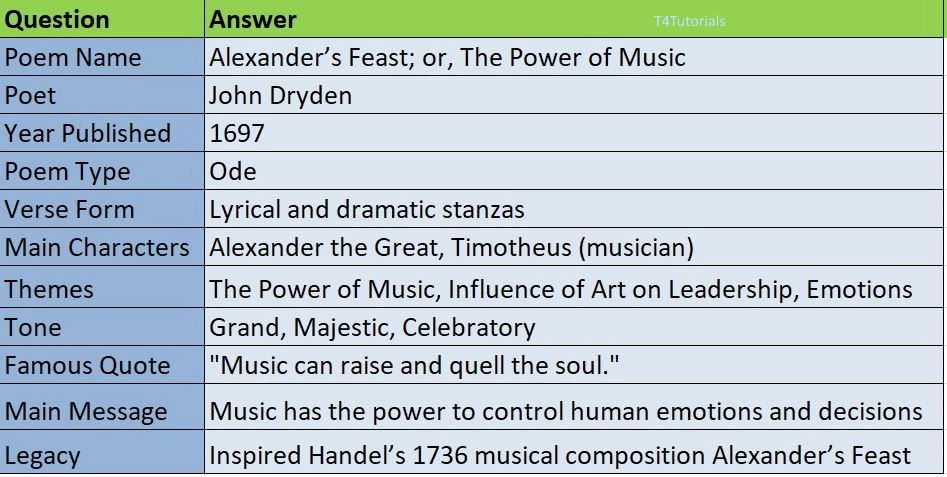Summary:
Alexander’s Feast; or, The Power of Music (1697) is an ode written by John Dryden to celebrate Saint Cecilia’s Day. The poem portrays a grand banquet held by Alexander the Great after his victory over Persia. During the feast, the musician Timotheus plays his lyre, evoking different emotions in Alexander—ranging from pride and triumph to sorrow and rage. The poem explores the transformative power of music, showing how it can manipulate human emotions and actions. Dryden’s work is a masterful example of lyrical poetry, blending grandeur, musicality, and dramatic intensity.

10
Score: 0
Attempted: 0/10
Subscribe
Score: 0
Attempted: 0/10
Subscribe
| Question | Answer |
| Poem Name | Alexander’s Feast; or, The Power of Music |
| Poet | John Dryden |
| Year Published | 1697 |
| Poem Type | Ode |
| Verse Form | Lyrical and dramatic stanzas |
| Main Characters | Alexander the Great, Timotheus (musician) |
| Themes | The Power of Music, Influence of Art on Leadership, Emotions |
| Tone | Grand, Majestic, Celebratory |
| Famous Quote | “Music can raise and quell the soul.” |
| Main Message | Music has the power to control human emotions and decisions |
| Legacy | Inspired Handel’s 1736 musical composition Alexander’s Feast |